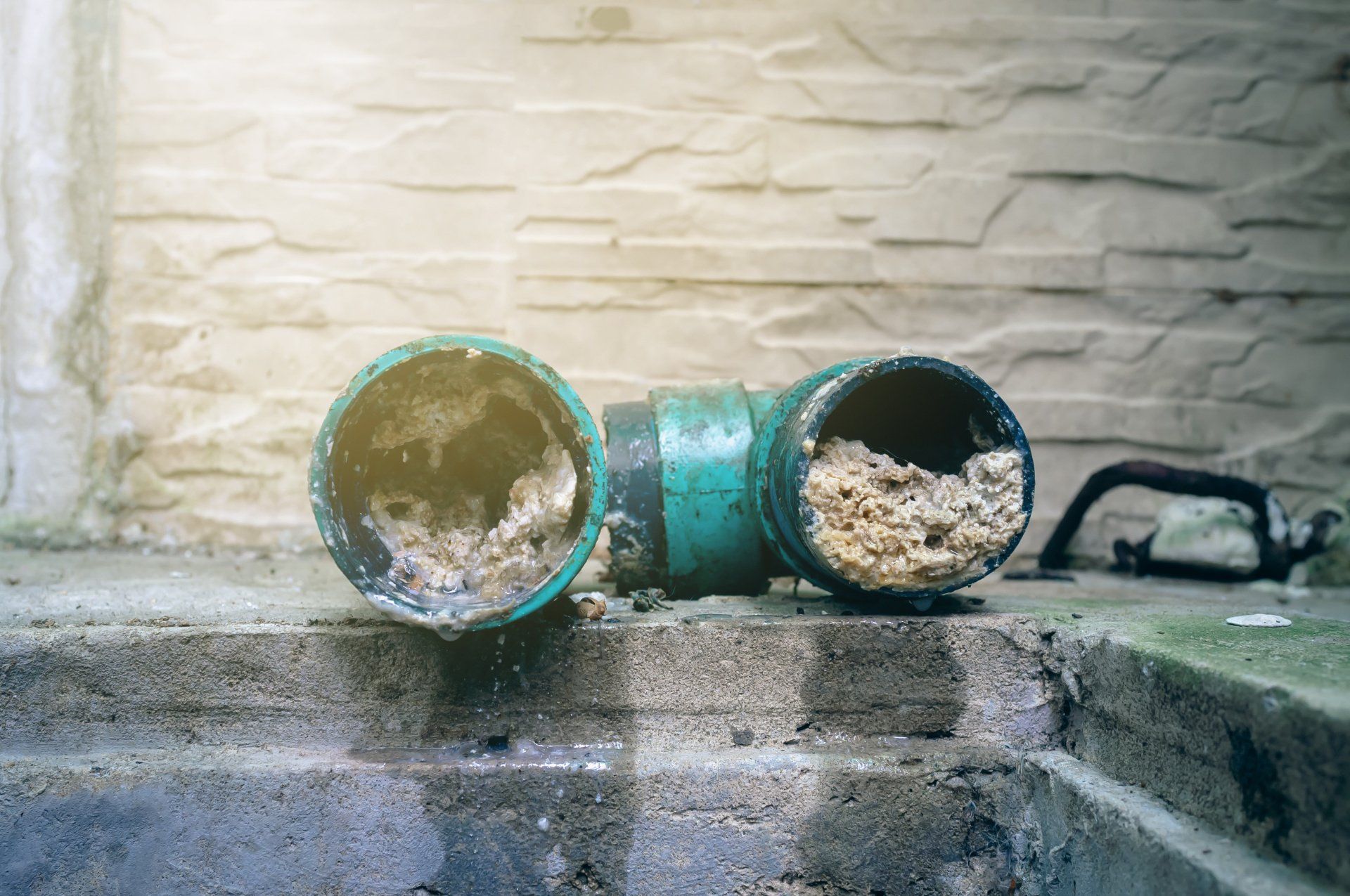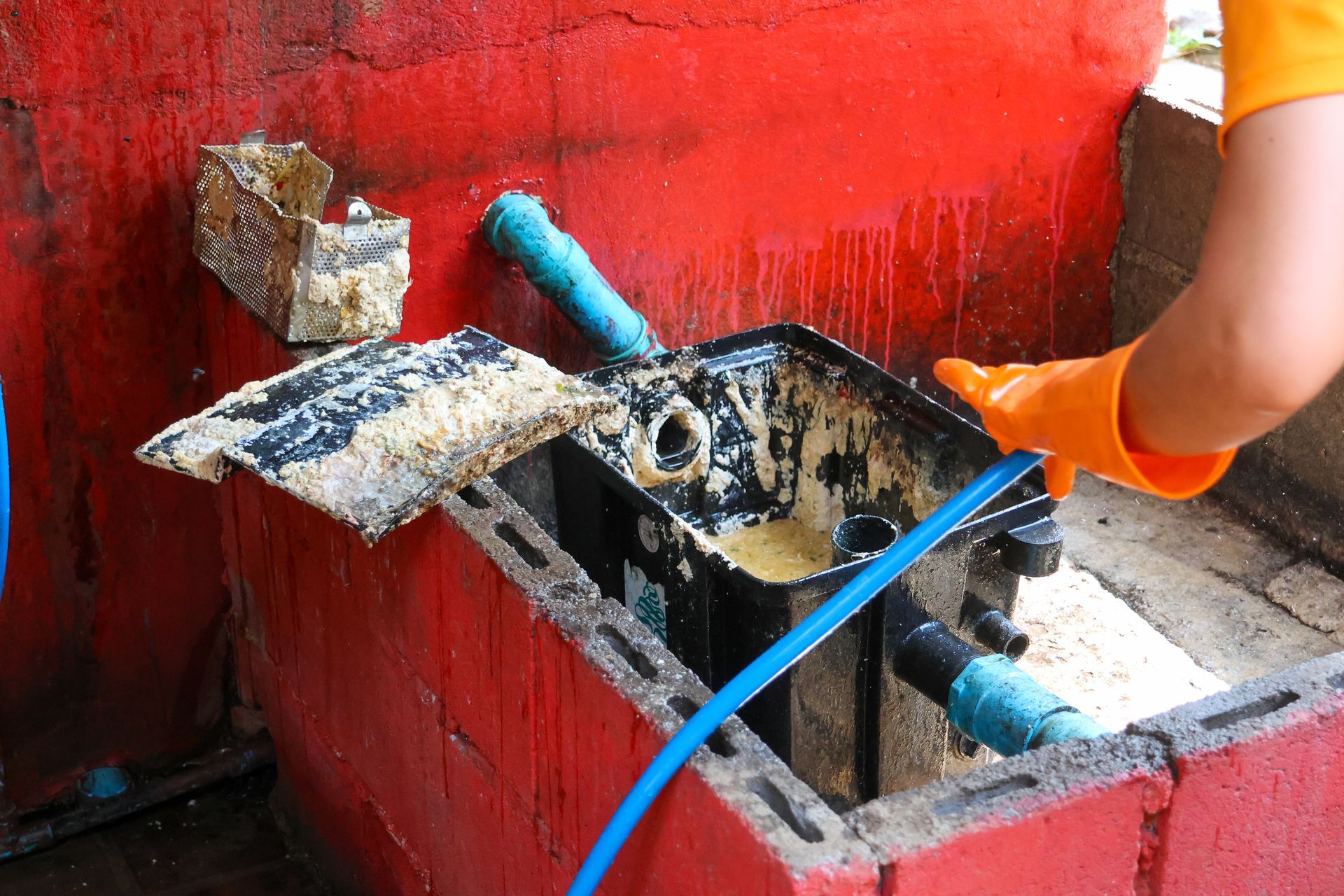Tips to Prevent Fats, Oils and Grease From Harming Your Pipes

Although fats, oils and grease (FOG) ordinances enforced by cities and counties in Georgia make running a business just a bit more complicated, they do offer one significant operational benefit. Businesses that adhere to local rules regarding FOG capture and disposal avoid incurring significant plumbing repair costs.
When you maintain adequately sized and properly functioning grease traps that are cleaned regularly, your business will be less likely to suffer FOG-induced plumbing breakdowns.
Georgia homes have no such FOG-disposal requirements. While you can find a lot of PSAs asking you to collect and dispose of grease responsibly when you cook at home, you’ll never have a random FOG inspector knocking on your door for a surprise grease trap inspection. The lack of formal regulations means some people are lax with FOG collection and disposal in their own kitchens, which can eventually lead to FOG clogs in pipes and sewer lines.
Sewer backups caused by FOG clogs aren’t just a problem for businesses. Single-family homes and multi-family properties may even have a greater risk for these issues because there are no real requirements for people to dispose of grease responsibly when they’re in their own kitchen at home.
If you’ve never experienced a sewer backup, you might not fully grasp the severity and inconvenience of this plumbing emergency. Sewer backups are more than just disgusting. They often result in property damage in your home and yard. A severe sewage backup may necessitate a large and hazardous tear-out project.
While your sewer line and plumbing are being repaired, you won’t have running water in your house, which makes everything from using the bathroom to brushing your teeth or showering a complicated undertaking. You’ll also be saddled with the significant costs of a massive plumbing repair. If your home can’t get trenchless sewer line repair, the plumbing company might even need to tear up your driveway or sidewalk, meaning you’ll need to pay for new hardscaping and landscaping.
The good news is sewer line clogs and FOG-related plumbing failures are avoidable.
Tips for Preventing Fats, Oils and Grease (FOG) Damage to Your Plumbing
- One of the two most important things you can do is pour grease from frying or cooking into a glass jar or metal can. Let the grease cool and solidify and then throw it away in the trash. If you don’t have any appropriate jars, you can push tin foil in a cup or bowl and then pour the grease into the tin foil for later disposal. Always let the grease cool and solidify before throwing it out since hot grease can cause burns or be a fire risk.
- Throw food scraps away instead of putting them in the garbage disposal or letting crumbs go down the drain.
- Don’t stick greasy plates directly into the dishwasher. Wipe off grease with a paper towel and then throw the paper towel away before putting the dish in the dishwasher.
- Make sure your sink is equipped with an appropriate food strainer to capture food waste. Empty your sink food strainers in the trash frequently.
Ways to Address FOG Clogs in Drains
There are several ways people try to handle their own FOG issues. These methods generally fall into one of three categories:
- DIY, minimally effective techniques
- Mechanical
- Chemical
You might have heard that pouring vinegar and baking soda down a pipe can help get FOG-blocked drains moving. There’s little empirical evidence to suggest this method does much good. Alternatively, you can try to pour boiling water down the slow or clogged drain. Although this may loosen FOG buildup, it may not provide significant positive results.
Some people with clogs may attempt to plunge their drain. Unfortunately, the pressure caused by plunging can break the pipe instead of the FOG clog. An alternative mechanical method that can potentially be effective is a hand auger, but you may want to leave that job to a professional plumber. Snakes and augers can also damage your pipes, especially if the pipes are old.
Chemical drain cleaners have similar issues. Although they can be effective for clogs, they can also damage your pipes. There is a far less harmful alternative – biological drain cleaners, sometimes referred to as drain maintainers. Bio drain cleaners contain bacteria and enzymes that digest FOG in a very literal sense. They will eat through the blockage instead of the pipes.
Get Help With Your Grease Trap Maintenance in Atlanta and Throughout Georgia
Businesses that want to ensure they don’t deal with messy and expensive plumbing problems caused by FOG-related blockages and clogs should contact Southern Green Industries. We take our responsibility to our clients seriously and work hard to ensure their FOG disposal systems are always working correctly. You can also trust Southern Green Industries for transparent and cost-effective fryer oil recycling services.
Call us at (404) 419-6887 to schedule your free consultation.
Recent Blog Posts
Contact us Today for a FREE Quote
We are committed to making grease trap cleaning and fryer oil recycling as clean and easy as possible. If you’d like to learn more about our services or get a quote, give us a call at (404) 419-6887.



